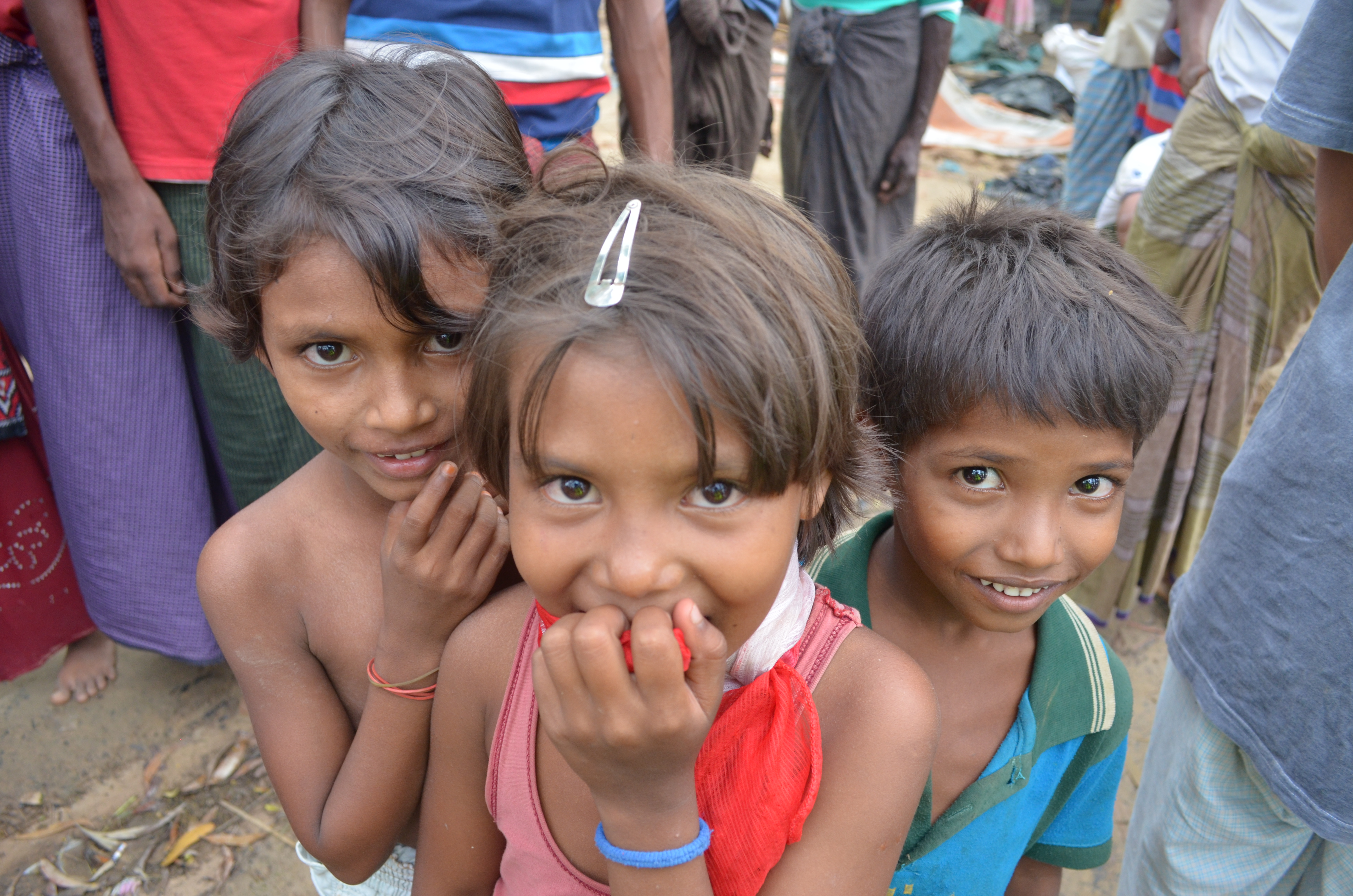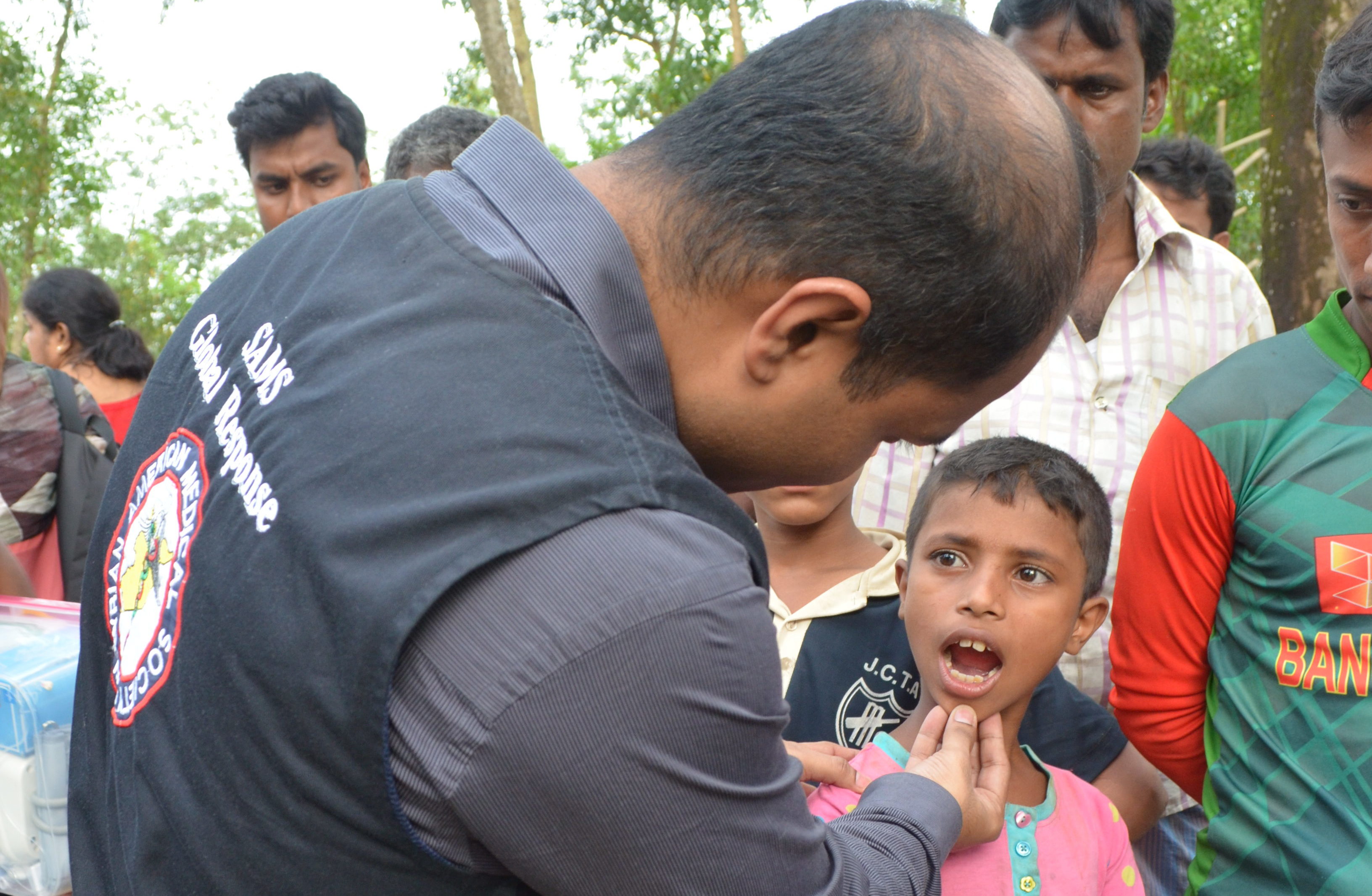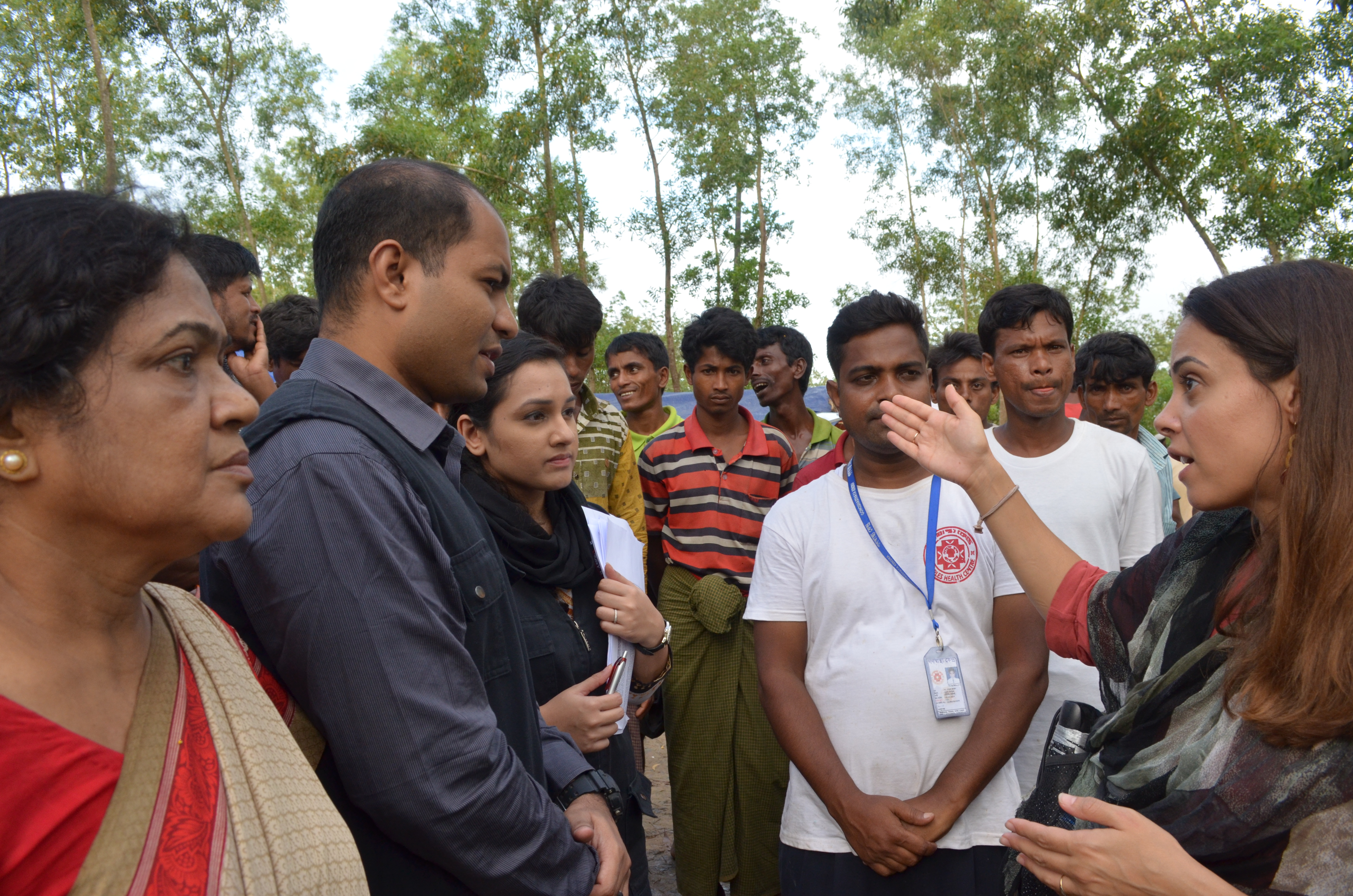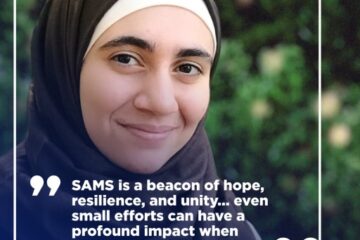September 25, 2017
The SAMS Global Response (SGR) Team landed in Dhaka, Bangladesh’s densely populated capital city, on Monday, September 18. At the time, the team consisted of myself and SGR director Dina Prior. Upon landing, we immediately identified other humanitarian aid workers at the Hazrat Shahjalal International Airport, also headed to aid the plight of the Rohingya people.
From our journey through the airport, hotel check-in, and meetings with doctors and UN officials, we were pleased to see local and international news outlets finally turning their attention to the hundreds of thousands of Rohingya fleeing into the Cox’s Bazar region of Bangladesh.
For years, the Rohingya people have faced persecution; Myanmar (Burma) has denied this community any chances for integration, citizenship and basic human rights. Almost half a million Rohingya have fled from Myanmar into neighboring Bangladesh – in recent months, a spike in violence has led to an even greater influx of the persecuted minority.
Dhaka: Meet the Emergency Response Team
On our first day in Bangladesh, our two-person team grew: Dr. Saba Al Salem, an ENT specialist with military and field work experience, joined us as a Medical Liaison Officer (MLO), as well as Dr. Purnima Kabir, an OBGYN who volunteered to join the team.
We also liaised with other actors on the ground. During a meeting with Bangladesh’s UNICEF Chief of Health, the SGR team gathered information on the immediate needs and shortages on the ground in Cox’s Bazar.
As we would see in our field visits, large numbers of pregnant women and young women with children are crossing over to Bangladesh and facing a dearth of medical personnel providing reproductive, maternal, and neonatal healthcare.
The community’s emergency medical needs don’t end there; many doctors on the ground are treating and reporting war-related wounds from possible mines. Women have faced sexual and gender-based violence, yet struggle to talk about and address these issues in a formal setting.
In addition to healthcare scarcities, the Rohingya are experiencing extra distress from climate-related issues. Flash floods caused by monsoon rains since early summer continue to contribute to further suffering.
Cox’s Bazar: Assessing Needs in the Kutupalong Refugee Camp
In Cox’s Bazar the following day, the local NGO representative for Gonoshasthaya Kendra (GK), Aklima Khatun, took the SGR team to Kutupalong refugee camp in Ukhia. We walked over to the GK clinic—a tent that resembled the shelters housing the Rohingya.
I felt a tug on my backpack and turned around to see a group of young children giggling and playing with my umbrella. They were amused by the wooden crown, which was carved into the shape of a duck’s head.
The children were the only speck of joy within the camp that day and the day after.
During our visit, we gifted the GK medical personnel with a box of medical equipment, including bandages, syringes, sphygmomanometers, otoscopes and infrared thermometers. In an effort to document the needs, the SGR team conducted interviews of GK workers, volunteers, and refugees, about their experiences. Soon after, Dr. Al Salem and Dr. Kabir evaluated patients to assess for the most common medical conditions.
In their many evaluations, Dr. Al Salem and Dr. Kabir observed that the most common medical conditions included diarrhea, malnutrition, viral fevers with coughs and possible RTIs (Respiratory Tract Infections). For pregnant women, there is a scarcity of screenings for infectious diseases.
The most pressing needs were clear: food, shelter, WASH, and healthcare.
“Many people are arriving in trucks and throwing clothes, food, and other items along the road. They have good intentions, but only the individuals near the main road are able to claim the goods. How about those living on the hilltops and deeper within the camp? They’re neglected”, said Mrs. Khatun.
“They need umbrellas for the rain and mats for the ground to protect them from the mud. They have solar lights but need torches for the night time,” she continued.
Mostafa Haque, a GK volunteer, mentioned the language barrier between the dialects spoken in Bangladesh and the Bengali dialect spoken by the Rohingya.
“Miscommunication is slowing down aid”, he said. “We’ve hired some volunteers from the older Rohingya community who have lived in this area for decades. They are able to speak both dialects. But this is still a problem and we need more people”.
Leaving Cox’s Bazar and Looking to the Future
GK closed down their clinic at five in the afternoon and the long line of patients dissipated. We were all exhausted, overwhelmed, dehydrated and hungry from hours on the field.
“We need a permanent structure. We are only open from ten in the morning till five in the afternoon. We worry about the people who are injured during the after-hours and the pregnant women who give birth during the hours we are not there. There are clinics nearby set up by other NGOs, but many are not aware. We hope to construct a 24-hour permanent structure here”, said Mrs. Khatun.
I turned to look at the camp once more before departing. Muddy grounds, mostly women and children, and thousands of people. Hundreds of thousands. Bangladesh, one of the most densely populated countries in the world, is hosting half a million Rohingyas.
“I have nearly 20 years of experience and this is definitely in the top five of the worst humanitarian situations I have seen”, said Dina as we sat in the van, waiting to drive to GK’s Cox’s Bazar office.
We concluded our day by meeting with Dr. Zafrullah Chowdhury, the founder of Gonoshasthaya Kendra (GK) and other vital members of the NGO. Our partnership with GK was sealed and we discussed plans for our next destination—Balukhali Camp.
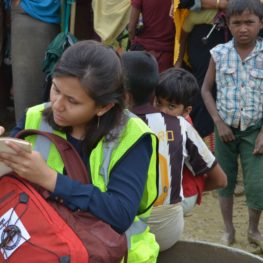 Sarah Rahman is the current SGR Program Officer for the emergency rapid needs assessment SGR mission in Bangladesh. A recent graduate of Wesleyan University, she is pursuing a career in medical humanitarian aid and global health, with an interest in working with vulnerable populations.
Sarah Rahman is the current SGR Program Officer for the emergency rapid needs assessment SGR mission in Bangladesh. A recent graduate of Wesleyan University, she is pursuing a career in medical humanitarian aid and global health, with an interest in working with vulnerable populations.

